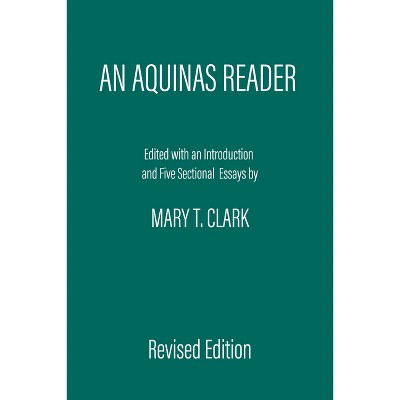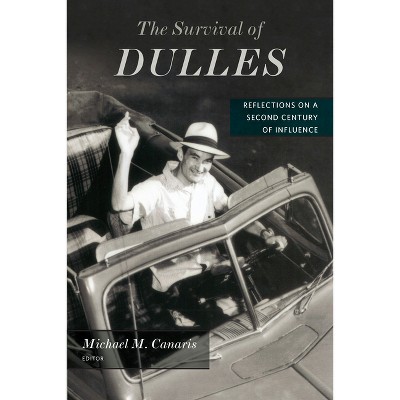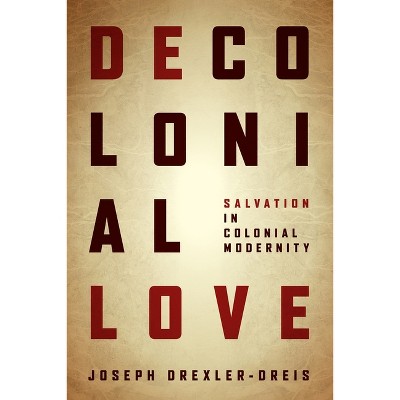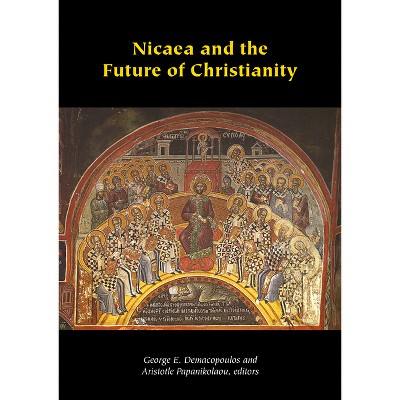$90.00 when purchased online
Target Online store #3991
About this item
Highlights
- Through Narcissus' Glass Darkly presents a genealogy and critique of the ideal of conscience in modern philosophical theology, particularly in the writings of Hobbes, Rousseau, and Kant.
- About the Author: DAVID S. PACINI is Associate Professor of Historical Theology at Emory University.
- 222 Pages
- Religion + Beliefs, Christian Theology
Description
Book Synopsis
Through Narcissus' Glass Darkly presents a genealogy and critique of the ideal of conscience in modern philosophical theology, particularly in the writings of Hobbes, Rousseau, and Kant. It shows why the apparently emancipatory rejection of heteronomy compromised the ideal of self-legislated freedom. David Pacini argues that, despite its advocacy of the popular political value of common understanding, the modern religion of conscience has become the Achilles' heel of both Kantian and Freudian thought. It is doomed to succumb to its own fundamentally narcissistic or self-relating orientation. Avoiding the tenacious cliché that the luminaries of modern philosophy simply replaced God with the self, David Pacini argues that the modern religion of conscience emerges out of a far more radical kind of disenchantment, one in which both God and self are de-divinized. Bereft of divinity, the God of modernity becomes empty; the self of modernity, in its autonomy, becomes hopelessly tied to dissociation from origins and to loss of a world. Left only to itself, the conscientious individual has only the world it legitimates through self-relating. But given that any other world is inconceivable, the conscientious individual can never know whether its world is just or merely the expression of self-interest. Paradoxically, Pacini argues, the most formidable proponents of the modern religion of conscience share with their critics a common problem: the self-legislating self has become both indispensable and impossible within much of modern philosophy and theology. This unique and interdisciplinary interpretation of conscience makes an important contribution for scholars and students of modern philosophy, Christian theology, psychoanalytic theory, and literary criticism.Review Quotes
This book is an important, fascinating set of essays that delineate the notion of the "religion of conscience" in Hobbes, Rousseau, and Kant. Pacini (Emory Univ.) uses this narrative to engage Wittgenstein, Freud, and Karl Barth. His history demonstrates the loss of an understanding of God as "wholly other" in the wake of Enlightenment beliefs that an autonomous subject could determine what was good and moral on the basis of rationality alone. This shift led to the loss of an understanding of God as being outside the human subject. The celebration of autonomy and the self-legislating subject made certain issues in ethics, self-understanding, and moral formation problematic. Pacini's conclusion introduces Freud and Barth to provide psychological and theological critiques of the Enlightenment conscience. The author's ability to make philosophical and psychoanalytic debates integral to a theological narrative is a rare achievement. This is a remarkable piece of scholarship. However, those not fully versed in philosophy and theology will find its technical and complex arguments difficult to follow. Summing Up: Highly recommended. Graduate students and faculty/researchers.-- "--Choice"
Focuses on writings by Hobbes, Rousseau, and Kant in a study of the concept of conscience in modern philosophical theology.-- "--The Chronicle of Higher Education"
Pacini's book provides a very original, lively, and well-informed account
of difficulties in the modern notion of conscience, which came to dominate
philosophical perspectives on Christianity in the period from Hobbes through
Rousseau and Kant. The volume is an excellent general study of a key topic in
the development of modernity, and it provides insightful criticisms of Kant's
philosophy of religion in particular.
An historico-critical tour de force...Pacini is a master of 'close-readings'.-----Carl Raschke, University of Denver
An original and important contribution to current discussion in philosophy of religion, theology, and literary theory.-----Mark C. Taylor, Columbia University
Pacini's book is, at one level, a critique of modernity, and it deserves an honored place among some of the best recent critiques. More fundamentally, his book illuminates an idea whose inner workings call for a rare ability to think theologically in the context of a modern philosophical narrative. The 'religion' in a religion of conscience defies the usual distinctions between religion and science, faith and reason, autonomy and dependence. Pacini deftly illuminates the depths of that brave new religion.-----James Wetzel, Villanova University
About the Author
DAVID S. PACINI is Associate Professor of Historical Theology at Emory University.
Dimensions (Overall): 9.0 Inches (H) x 6.2 Inches (W) x .8 Inches (D)
Weight: .97 Pounds
Suggested Age: 22 Years and Up
Sub-Genre: Christian Theology
Genre: Religion + Beliefs
Number of Pages: 222
Publisher: Fordham University Press
Theme: General
Format: Hardcover
Author: David S Pacini
Language: English
Street Date: December 22, 2008
TCIN: 93194526
UPC: 9780823229642
Item Number (DPCI): 247-12-5629
Origin: Made in the USA or Imported
If the item details above aren’t accurate or complete, we want to know about it.
Shipping details
Estimated ship dimensions: 0.8 inches length x 6.2 inches width x 9 inches height
Estimated ship weight: 0.97 pounds
We regret that this item cannot be shipped to PO Boxes.
This item cannot be shipped to the following locations: American Samoa (see also separate entry under AS), Guam (see also separate entry under GU), Northern Mariana Islands, Puerto Rico (see also separate entry under PR), United States Minor Outlying Islands, Virgin Islands, U.S., APO/FPO
Return details
This item can be returned to any Target store or Target.com.
This item must be returned within 90 days of the date it was purchased in store, shipped, delivered by a Shipt shopper, or made ready for pickup.
See the return policy for complete information.






